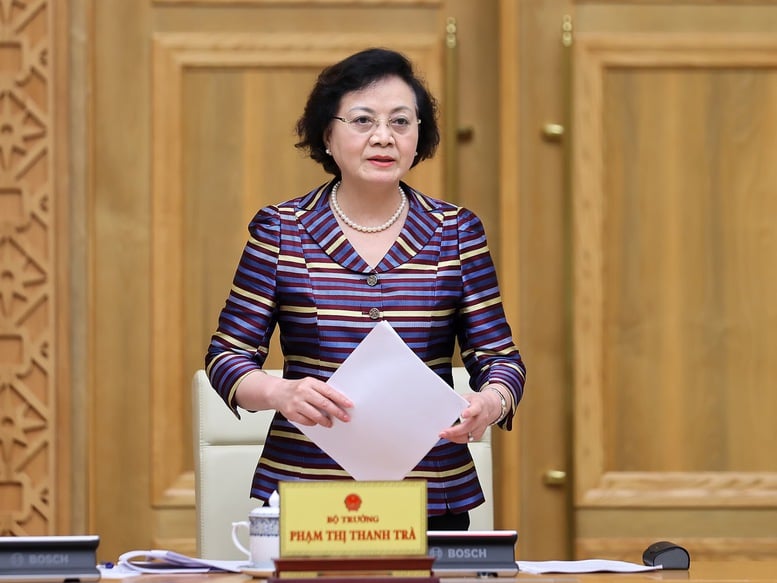
Minister of Home Affairs Pham Thi Thanh Tra speaks at the meeting - Photo: VGP
At the meeting of the Standing Committee of the Government Party Committee and the Government on assessing the situation after 2 months of operating the 2-level local government, Minister of Home Affairs Pham Thi Thanh Tra said that after 2 months of implementation, the system is basically stable, smooth, and uninterrupted; creating a new working atmosphere and spirit and initially having a change in thinking and awareness in performing functions, tasks, and public services.
Since August 1, the Government has issued 16 more Decrees, most of which regulate the arrangement of administrative units, adjusting the functions, tasks, and powers of two-level local governments in specialized fields.
Ministries and branches have increased the organization of online conferences to provide professional guidance and answer recommendations and questions for cadres, civil servants and public employees of local authorities at provincial and communal levels.
The Ministry of Home Affairs, as the standing agency of the Government's Steering Committee, always maintains the reception of feedback and recommendations to promptly resolve difficulties and problems in the process of implementing two-level local government; organizes a national online conference (August 9, 2025) to 34 provinces and cities and 3,321 communes, wards and special zones nationwide to provide professional training for commune-level cadres, civil servants and public employees on functions, tasks, authority, methods and skills of commune-level government management.
In its advisory work, the Ministry of Home Affairs has issued a document guiding the implementation of Conclusion 183 of the Politburo , including the termination of the implementation of regimes and policies according to the provisions of Decree No. 178/2024/ND-CP (amended and supplemented in Decree No. 67/2025/ND-CP) on August 31, 2025.
"This is a big problem, and many localities are facing difficulties due to the short time it takes to implement it. The Ministry of Home Affairs has instructed agencies and localities to carefully review and consider the right subjects for policy leave according to regulations, to avoid widespread layoffs, and to focus on retaining competent officials to ensure the quality of the team," said the Minister of Home Affairs.
Regarding the settlement of policies and regimes for cadres, civil servants and public employees, as of August 19, the total number of people who have decided to quit their jobs is 94,402, of which 81,995 people have submitted their budget to competent authorities and have been approved (50,345 people have received money).
It is expected that by the end of August, the number of people taking leave under Decree 178 will increase by about 6,000 - 7,000 people. Thus, the number of people taking leave under Decree 178 is estimated at about 100,000 people.
At the same time, the Ministry of Home Affairs has also focused on submitting to the Government Party Committee to submit to the Politburo (through the Central Organizing Committee) the framework for the number of deputy positions of agencies and units in the political system under its management. The Politburo has given initial comments on this issue and currently the Ministry of Home Affairs continues to coordinate with the Central Organizing Committee to complete, focusing on 4 key contents.
This includes completing the job position framework as a basis for determining the number of staff; innovating the work of evaluating cadres, civil servants and public employees according to the requirements of the Law on Cadres and Civil Servants, including applying KPIs; classifying and standardizing administrative units (in coordination with the Ministry of Construction); adjusting the allowance regime, including position allowances, regional allowances and special allowances.
Regarding decentralization, delegation of authority and assignment of authority, up to now, on the basis of 30 issued decrees, 66 circulars of ministries, ministerial-level agencies and government agencies. Along with that, 16 new decrees also continue to specify the policy of decentralization and delegation of authority.
"It can be said that at the central level, the implementation shows great effort and determination. However, on the local side, although this policy has been accepted, it is still generally overloaded," said Minister Pham Thi Thanh Tra.
The implementation of decentralization and delegation of power has not been truly synchronous, except for some large provinces and cities. Localities not subject to mergers and consolidations have received the assignment more quickly; while many other places still need more time to stabilize their organizational structure and political tasks after the arrangement, so implementation is still limited.
Regarding the reception and settlement of administrative procedures, some localities such as Ho Chi Minh City and Quang Ninh have a high number of online records and effective processing, but many mountainous provinces such as Dien Bien still have limitations.
Regarding the digitization of records and documents, this is a major difficulty at present due to the large volume of documents, complex operations, limited human resources and large costs. Localities have compiled the needs and sent them to the Ministry of Science and Technology to coordinate with the Ministry of Finance to advise the Government on funding.
Regarding the arrangement, layout, and handling of headquarters and public assets, according to the report of the Ministry of Finance, as of August 15, the total number of surplus houses and land that need to be handled is 16,124, of which 6,704 houses and land arise due to the arrangement of administrative units.
Regarding cars, currently, there are still 354/3,321 commune-level administrative units that are not equipped with cars. Regarding machinery and working equipment: Up to now, there are still 601/3,321 commune-level administrative units that do not meet the requirements for machinery and equipment, and mainly do not meet the requirements for the quality of machinery and equipment.
Proactively regulate surplus and shortage of staff within the locality
In the coming time, the Minister of Home Affairs requested the Ministry of Science and Technology to closely follow localities to remove difficulties in implementing and processing online records at the commune level. The Ministry of Finance continues to provide guidance on public asset and financial management. The Ministry of Natural Resources and Environment will strengthen training, fostering, and "hand-holding" for commune levels in handling land procedures - one of the areas with the most problems.
The Ministry of Home Affairs submitted to the Government Party Committee and the Politburo major contents on the implementation of the Law on Cadres and Civil Servants (including regulations on evaluation and classification of civil servants, recruitment of new civil servants to meet the requirements of job positions in the new situation, etc.), regulations on regional allowances, special allowances according to new areas...
Ministries and branches need to coordinate to review and clearly define authority, ensuring decentralization and delegation of power in practice.
For localities, it is necessary to continue to stably operate the 2-level local government model; promptly and promptly resolve administrative procedures for people; at the same time, comprehensively review, evaluate, classify, restructure and improve the quality of the team of commune-level cadres and civil servants after 2 months of operation.
Localities must also urgently resolve policies and regimes in the spirit of Decree 178 and Decree 167; proactively regulate surplus and shortage of staff within localities and promptly contract human resources in urgent and deficient positions.
In addition, it is necessary to pay attention to investing in and supplementing digital infrastructure, ensuring interconnection of national databases and information systems with localities, meeting the requirements of smooth and effective administrative procedure settlement.
Another important task is to strengthen training, fostering, and updating knowledge for cadres, civil servants, and public employees. The Ministry of Home Affairs has issued guidelines, but at the grassroots level, it is necessary to promote the spirit of "self-training, mutual self-improvement" to promptly meet work requirements.
Thu Giang
Source: https://baochinhphu.vn/ra-soat-ky-khong-de-nghi-viec-theo-chinh-sach-nghi-dinh-178-tran-lan-10225082318592639.htm



![[Photo] Prime Minister Pham Minh Chinh chairs the meeting of the Government Party Committee Standing Committee](https://vphoto.vietnam.vn/thumb/1200x675/vietnam/resource/IMAGE/2025/8/23/8e94aa3d26424d1ab1528c3e4bbacc45)

![[Photo] General Secretary To Lam attends the 80th Anniversary of the Cultural Sector's Traditional Day](https://vphoto.vietnam.vn/thumb/1200x675/vietnam/resource/IMAGE/2025/8/23/7a88e6b58502490aa153adf8f0eec2b2)




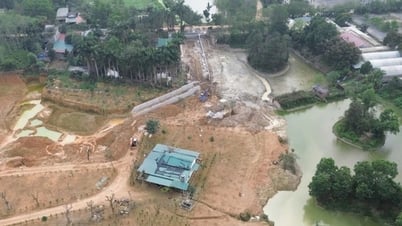



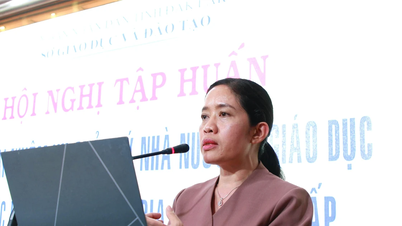


















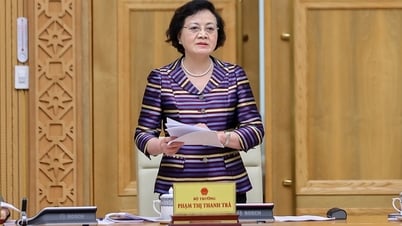

















































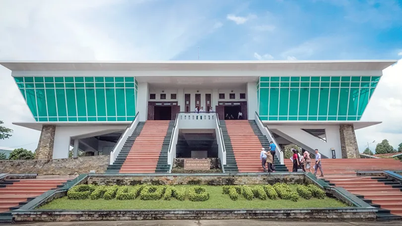



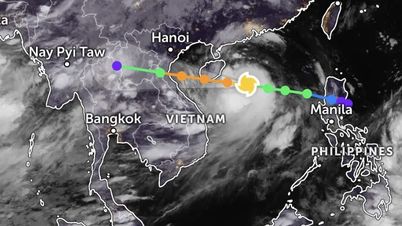




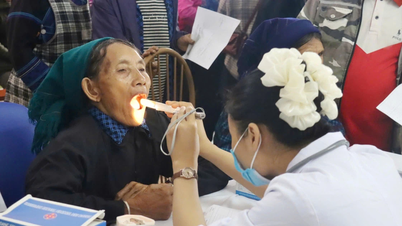













Comment (0)